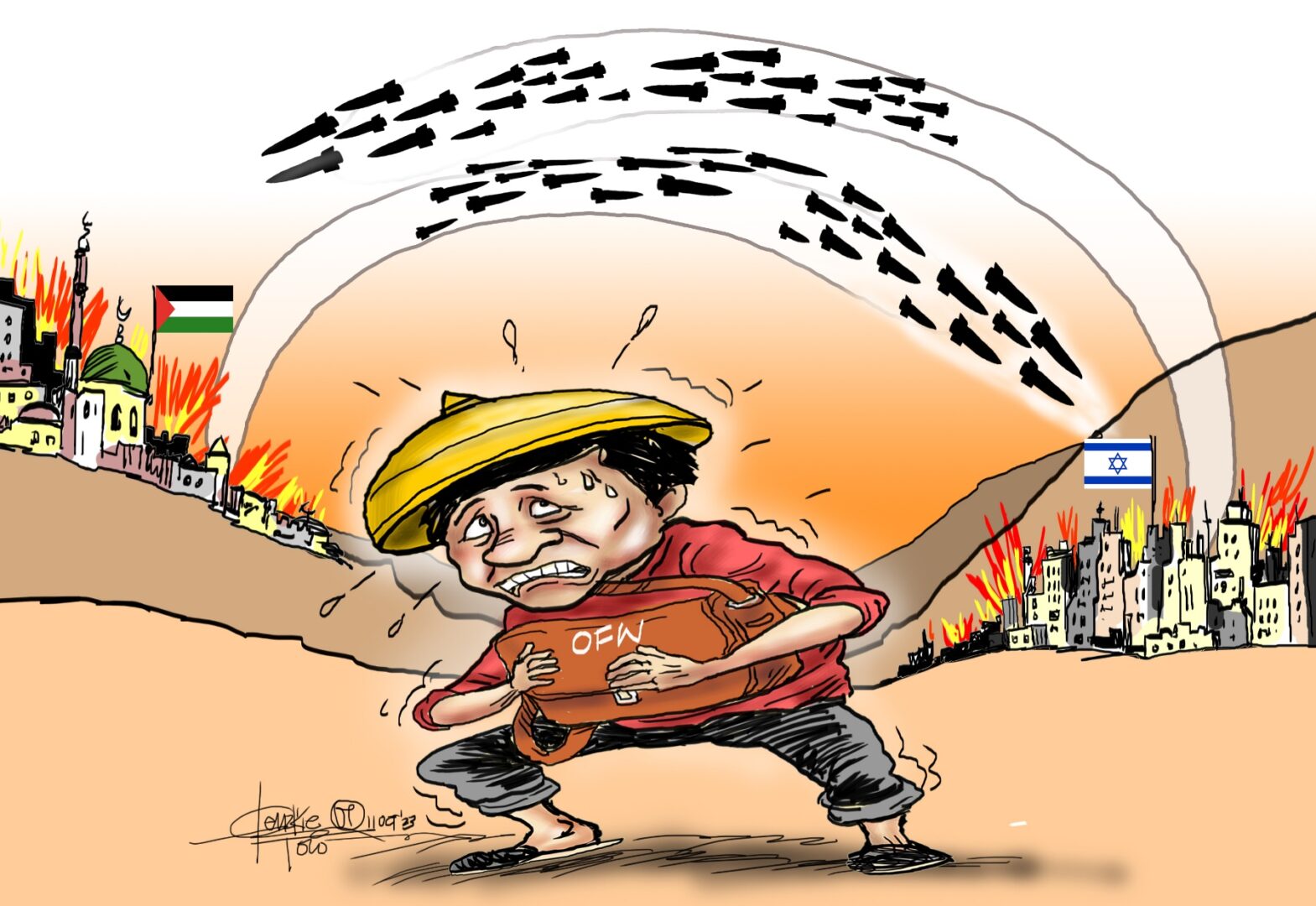Saturday witnessed an unprecedented escalation in the longstanding cycle of violence between Israel and Palestinian militant groups (Hamas), leaving the world in shock.
Hundreds of Hamas militants managed to breach the long-standing steel and concrete barrier that contained Palestinians within Gaza. They launched a multi-pronged attack, infiltrating Israel via land, sea, and even air with paragliders while simultaneously unleashing a barrage of over 3,000 rockets on Israeli towns and cities.
Hamas, labeled a terrorist organization by the US and Israel, wreaked havoc, indiscriminately targeting civilians, engaging Israeli security forces with lethal consequences, and kidnapping hostages, including women, children, and older people.
The escalating conflict has resulted in a devastating death toll surpassing 1,500, including hundreds of children and at least 11 Americans. Data from the Israeli Embassy in the Philippines showed more than 300 hostages held in Gaza, over 2,616 Israelis injured, nearly 5,000 rockets fired, and 1,290 targets hit.
Explosions echoed amid the chaos as Israel’s Iron Dome air defense system intercepted some of the rockets, but the extent of the breaches remains unknown.
The situation remains highly volatile and tense as clashes persist between the two sides, also affecting more than 27,000 overseas Filipino workers.
According to 53-year-old Marc Pleños, chairperson of the DDS-OFW Global Movement for Empowerment, this war is more intense than the many conflicts he had experienced during his 18 years working in Tel Aviv. He narrated how several Filipinos hiding in shelters have to make do with just water to survive.
While war images can be horrifying, the world needs to be aware of the realities of conflict.
Hamas, an acronym for Harakat al-Muqawama al-Islamiya (Islamic Resistance Movement), has long been a controversial and formidable force in the Middle East. While some argue that Hamas is a legitimate group fighting against Israeli occupation, its tactics and ideology have undeniably led to widespread suffering and instability.
One of the most disturbing aspects of Hamas’s modus operandi is its deliberate targeting of civilians.
Whether through rocket attacks, suicide bombings, or other acts of violence, Hamas has consistently shown a complete disregard for innocent lives. International law unequivocally condemns such actions that undermine any claim to a legitimate resistance movement. The deliberate targeting of civilians only perpetuates the cycle of violence and hampers any prospects for lasting peace in the region.
Known to employ human shields, Hamas cynically exploits the civilian population, putting innocent lives at risk.
Like other terrorist groups, it manipulates media coverage to its advantage, distorting facts and utilizing propaganda to generate sympathy and support. These tactics only prolong the conflict and hinder efforts towards a peaceful resolution.
Exercising strict control over the areas it governs, stifling political opposition, and trampling on fundamental human rights, dissenting voices and critics are silenced through intimidation, arbitrary arrests, and even extrajudicial executions.
Hamas’ refusal to recognize the State of Israel and engage in meaningful dialogue undermines any prospects for a peaceful resolution to the Israeli-Palestinian conflict. Its charter is explicitly committed to the destruction of Israel, leaving no room for negotiation or compromise.
Hamas perpetuates a cycle of bloodshed by rejecting diplomatic solutions and resorting to violence, making it increasingly challenging for moderate voices to gain traction and work toward lasting peace.
These individuals cannot be considered “freedom fighters” but rather terrorists who bear resemblance to ISIS, Jemaah Islamiyah, Abu Sayyaf Group, Bangsamoro Islamic Freedom Fighters, CPP-NPA, and Al-Qaeda, to name a few.
Despite the difference in names, their tactics are similar — inflicting violence on innocent civilians, recruitment of children, kidnapping, extortion, and desecrating the deceased.
To achieve peace, it is crucial to marginalize terrorist organizations and empower moderate voices advocating for peaceful coexistence. This path requires rejecting terrorism, engaging in dialogue, and prioritizing the well-being and security of all civilians.
We can only succeed if the cycle of violence is broken.
